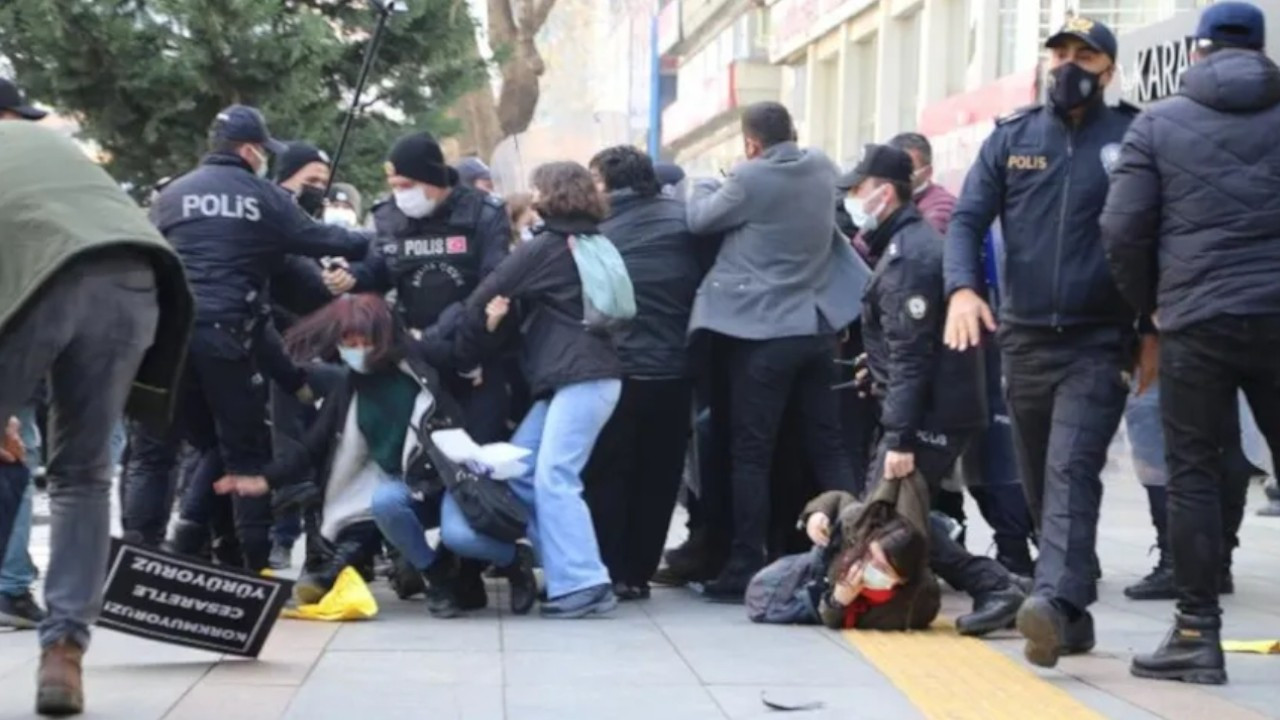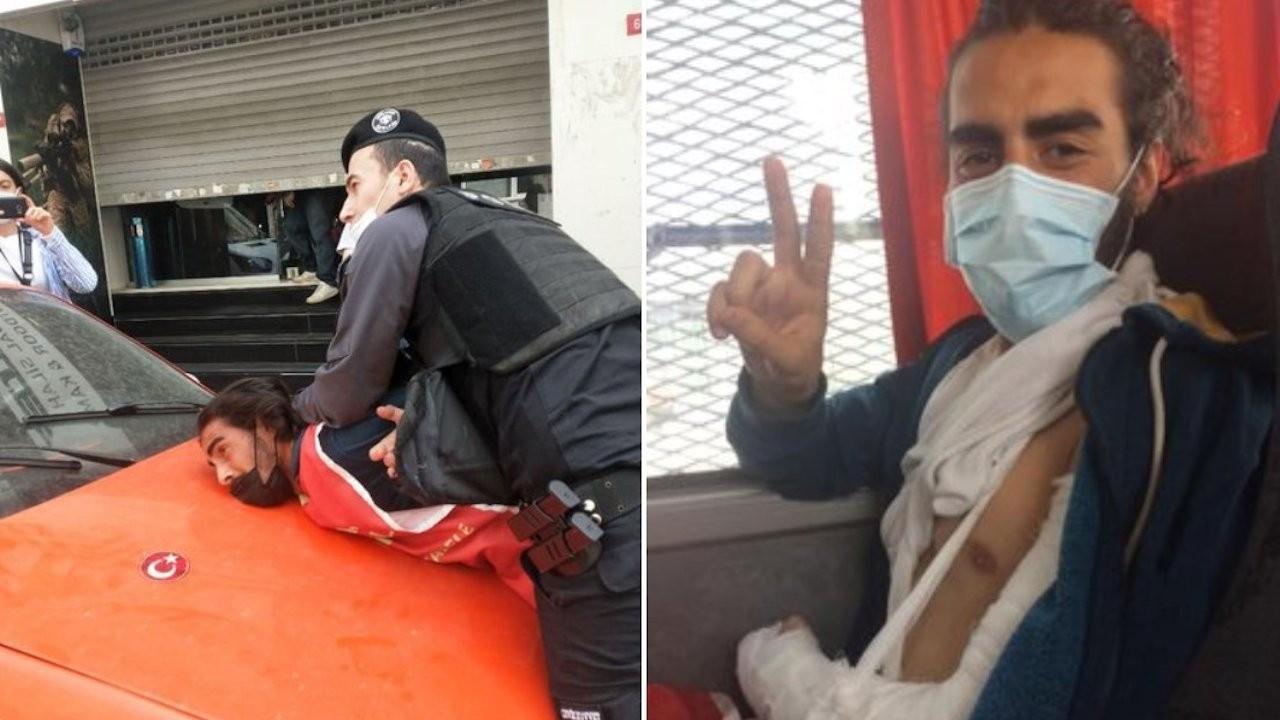Government bans audio and video recording of police
This ban on recording voices and images in public places means that the government is supporting police violence in a country where police are given ample authority as if in a police state, where almost all activities are criminalized by police violence.
The rule of law suffers blows on a daily basis in Turkey. And while we do our best to emphasize this, the culprits pretend nothing is happening. We’ve now reached the stage where people start to get angry at those who denounce this lawlessness. When lawlessness hits you directly, you have to appeal to the competent authorities. One can also remind the oppressor of one’s legal rights and be successful in that quest. Therefore, it is worth knowing, in any case, what the violations are.
The government issued two circular orders last week, one after the other, each of which prohibited something. One was the ban on liquor sales during the 17-day lockdown. The other was the ban on audio and video recording of police actions during demonstrations. In this piece, I’ll take a careful look at the latter.
As a rule, recording voices and images in public places is not forbidden. What happens in practice? Here’s an example: Suppose you’re taking the picture of a cat on a street and someone drinking tea in the background enters the picture. Does this constitute a violation of a person’s privacy? It doesn’t.
Let’s assume that the person drinking tea in the background sees his picture on billboards and files a lawsuit saying that his privacy has been violated. There can be various outcomes. In other words, this issue is controversial. If an activity is taking place in public, people generally take part in it, knowing that their voices and images can be recorded. Those are places where the press is also present. Claiming that your privacy has been violated during a recording in a public place is against the natural flow of life. Let alone public law, there are rulings about the permission to use voice recordings to prove the incompatibility between spouses in divorce cases that is covered by private law.
Let’s take a look at the police. Police are public servants, the time and place when and where they carry out their public service are not in the sphere of private life. Don’t we say, “the state doesn’t have a private life”? Its name explains it; it is called public service; therefore, recording the voice and image of the police cannot be the violation of their private lives. The government’s circular order attempts to legitimize this ban by using the worst and most illogical argument.
This ban on recording voices and images in public places means that the government is supporting police violence in a country where police are given ample authority as if in a police state, where almost all activities are criminalized by police violence. In this country, police are not held accountable for their violence, especially when they don’t do their job properly in domestic violence cases. This practice encourages police violence, it is an open declaration that police violence is supported.
Disproportionate use of force by the police is a crime. Even an ordinary citizen has been given the authority to catch a criminal red-handed. Article 278 of the Turkish Criminal Code holds the citizen responsible for “Reporting a Crime.” Records of the voices and images of the police are evidence of their disproportionate use of force; these are absolutely not against the law. Therefore, because of these reasons, the issued circular order is some sort of spoliation of evidence. Circular orders cannot be against the law and justifications against the law are null and void. In other words, citizens are free to record sounds and images during demonstrations and activities in which the police are involved.
Perpetrators cheat from each other in terms of the method of violence. For instance, after the murder of Emine Bulut, the perpetrators mostly committed murder by slitting throats. Similarly, after the murder of Pınar Gültekin, we saw many murders by burning. Turkey began to see similar police behavior after George Floyd was murdered by a cop.
People are naturally scared and such circular orders are issued to increase their fear. The questions here are: What are they trying to conceal? Is it their duty to protect the criminals among the police? It is the duty of the police to protect the citizens. How can the citizens trust the police under these circumstances? The government’s cowardly policies have crippled even the most fundamental responsibilities. Law enforcement has moved away from its professional responsibility to such an extent that they have tweeted, “We will take legal action against those who slander” following their announcement claiming that the number of femicides had decreased. How can women, who are already frequently subjected to the worst police violence during activities and demonstrations, trust the police now?
The legal system is a means to establish a balance between the state and the citizen. The legal system is there to prevent state oppression. Once you don’t hold public servants accountable for their actions, they will abuse their power even more. This has always been the case. What have you done now? Have you increased the fear of citizens, who have already been oppressed each and every day? Congratulations.
It is becoming ever clearer that the struggle in any domain is not independent of the struggle in any other field. Women’s struggle, laborers’ struggle, economic struggle, struggle for health (the right to live), for housing and education; in short, our struggle for all our fundamental rights and freedoms are all interrelated. We have a government that is only concerned with its own survival. They do not care about fundamental rights and freedoms; they use all methods of intimidation and fear. Therefore, there is only one solution to this totally adverse situation. They should be removed from their seats. This can only happen through elections and through our votes. Nonetheless, it will absolutely happen.


 Ban on filming Turkish police officers challenged in top administrative courtHuman Rights
Ban on filming Turkish police officers challenged in top administrative courtHuman Rights Turkish police told to prevent people filming them in bid to hide brutalityHuman Rights
Turkish police told to prevent people filming them in bid to hide brutalityHuman Rights